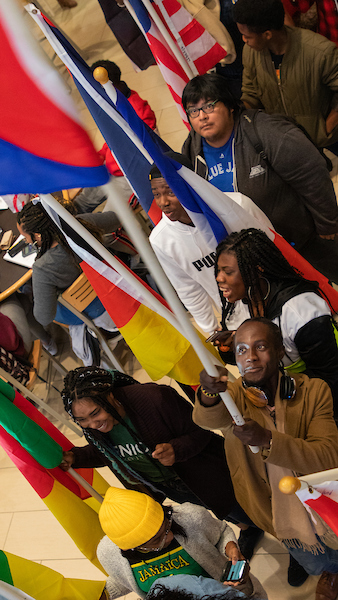Black Studies
Learn more about Black Studies
Admission Requirements
None.
This program does not have specific admission requirements. Only admission to Kennesaw State University is required to declare this major.
Related Minors or Certificates Available
- African and African Diaspora Studies Minor
Sample Classes
-
BLCK 2200: Black Thought Matters
This course offers an introduction to Black Political Thought. It analyzes traditions and trajectories of Black intellectual discourse during the 20th Century. Emphasis is placed on foundational texts in the field of Black Studies, yet students will engage with a range of works representing the diversity of Black thought in the 20th Century. This course examines the goals, viewpoints, and strategies of various intellectuals, social movements, and other political voices from the African Diaspora.
-
BLCK 3200: Race and Technology
This course examines technology as a factor in historical change, emphasizing the role of tools, machines, and systems in revolutions, culture, politics, and economics in Africa and the African diaspora. Students engage historiographical debates and readings on the relationship between race and technology in the recent and distant past. More broadly, students develop a critical understanding of the role of race inquiry in technological knowledge through biographies, case studies, and primary source documents.
-
BLCK 3510: Black Women Writers
This course is a comparative study of literature by Black women writers from the U.S., the Caribbean, Africa, and/or any region in the African diaspora. Readings for the course may include poetry, short fictions, novels, drama, biography, and autobiography. Topics include narrative strategies, modes of representation, and textual depictions of the intersections of race, gender, sexuality, ethnicity, class, nationality, and/or generation.
-
BLCK 4500: Social Policy and Grassroots Organizing
This course explores how to transform grassroots social movements into sustainable institutions with organizational, political, and policy objectives. The aim of the course is to bring marginalized perspectives to the challenges facing activists and policymakers. In this course, students foster more awareness on how interdisciplinary strategies and grassroots collaborations can bring about sustainable social change.












